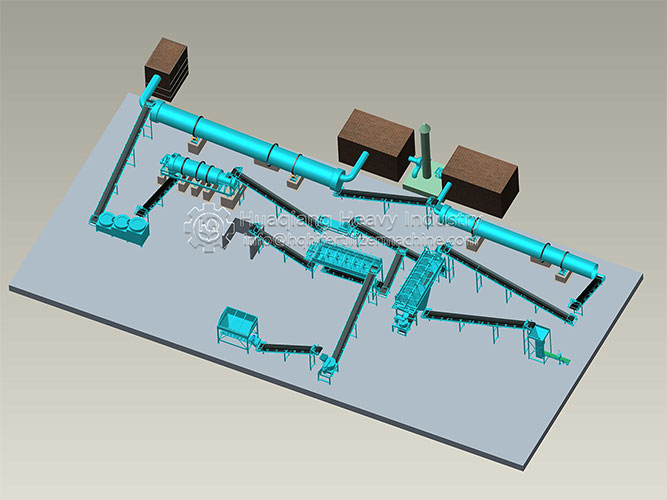
In modern agriculture, organic fertilizer production lines are becoming increasingly common. This advanced production method not only improves fertilizer quality and efficiency but also contributes to sustainable agricultural development.
1. Boosting Production Efficiency
Organic fertilizer production lines use automated and continuous processes to significantly shorten production time. For example, automated ingredient systems and continuous-running lines can produce large quantities of organic fertilizer quickly, meeting the demands of large-scale farming.
2. Ensuring Fertilizer Quality
These production lines allow precise control over fertilizer composition and quality. Through accurate steps like fermentation, mixing, and granulation, nutrients are evenly distributed in the final product, improving effectiveness. Strict quality checks and certification systems also guarantee product safety and consistency.
3. Environmentally Friendly and Energy-Efficient
The organic fertilizer production line process converts organic waste into usable fertilizer, reducing pollution. For instance, treating livestock manure through fermentation not only minimizes environmental harm but also turns waste into a valuable resource.

4. Cutting Costs
While the initial investment in a production line might be high, it pays off over time. Recycling agricultural waste lowers material costs, while automation reduces labor needs and boosts output.
5. Supporting Sustainable Agriculture
Organic fertilizers improve soil structure and fertility, leading to better crop growth and quality. By reducing reliance on chemical fertilizers, this approach lessens agriculture’s environmental impact and promotes long-term sustainability.
In summary, organic fertilizer production lines offer multiple benefits. As technology advances and their use expands, these systems will play an even bigger role in shaping the future of farming.